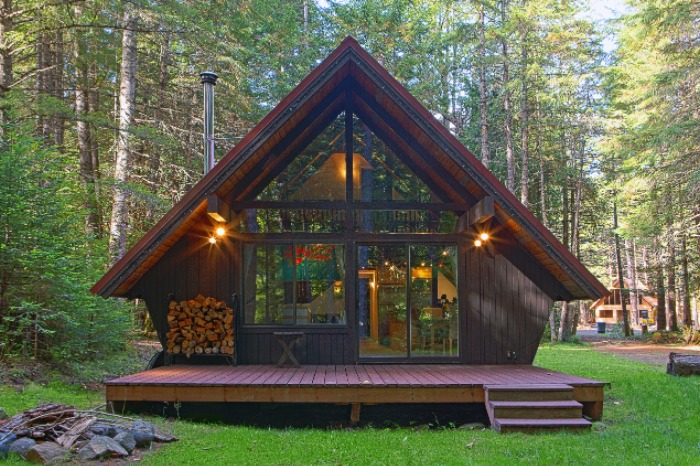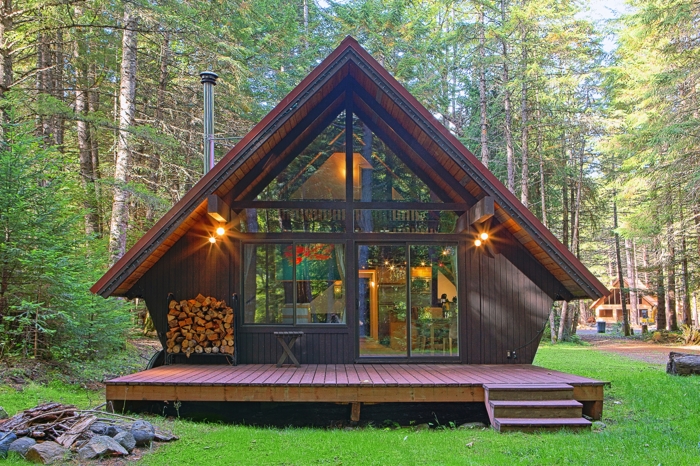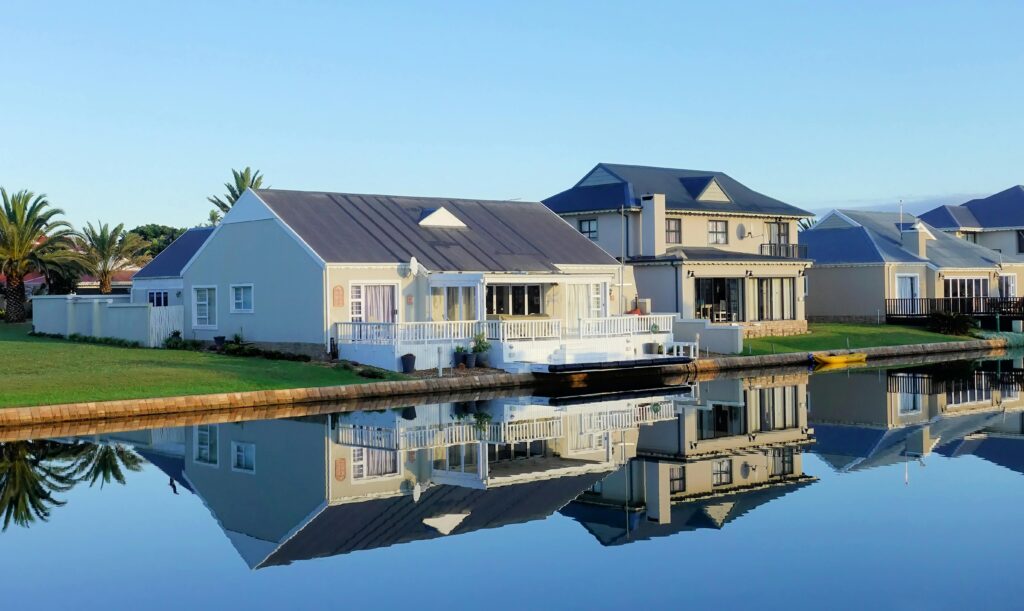
The rental arbitrage business plan is your blueprint for building a thriving Airbnb rental arbitrage business. It’s not just a document—it’s a strategic weapon to dominate the short-term rental market. Launching an Airbnb arbitrage project requires detailed strategic planning and a thorough understanding of local regulations. With rental arbitrage, you lease properties long-term and re-rent them as short-term rentals on platforms like Airbnb, generating substantial income without owning property. 10XBNB, the leading mentorship program for aspiring Airbnb hosts, equips you with the tools, Airbnb Tips and scripts plus strategies to scale this business model to six figures and beyond.
What Is Rental Arbitrage?
Rental arbitrage is a business model where you rent a property long-term and list it as a short-term rental on platforms like Airbnb or Vrbo. Unlike traditional property ownership, Airbnb rental arbitrage allows you to control high-value assets without massive upfront costs. You’re not buying property—you’re leveraging a long-term lease to create a profitable short-term rental business. Efficient management and operational frameworks are crucial for running a successful Airbnb business.
Why Choose Airbnb Rental Arbitrage?
Airbnb rental arbitrage offers a low-barrier entry into the vacation rental business. With over 7 million Airbnb listings globally, this extensive availability presents lucrative opportunities for entrepreneurs in the short-term rental market. With careful planning, you can generate substantial income while avoiding the financial burden of property ownership. The business model thrives on high occupancy rates and strategic pricing, making it ideal for entrepreneurs who want passive income without millions in capital.
The 10XBNB Edge
10XBNB’s mentorship program transforms beginners into rental arbitrage experts. From crafting a bulletproof rental arbitrage contract to mastering guest communication, their proven system ensures you avoid costly mistakes. Effective guest communication is crucial for optimizing Airbnb listings and enhancing overall performance. Learn more about their approach at 10XBNB’s Airbnb Arbitrage Mentorship.
Is Airbnb Arbitrage Still Viable?
Absolutely. The short-term rental market is booming, with demand for vacation rentals soaring in 2025. Airbnb rental arbitrage remains a profitable business, especially in high-demand cities. Thorough market research, like what 10XBNB teaches, ensures you target the right arbitrage property for maximum returns.
How Profitable Is Rental Arbitrage?
Profitability in rental arbitrage depends on location, occupancy rates, and operational efficiency. A well-managed Airbnb property can yield 20-50% profit margins after the month’s rent and business expenses. For example, renting a property for $2,000/month and listing it for $150/night with 20 nights booked generates $3,000 in Airbnb income—$1,000 profit before minor costs. Scaling to multiple properties amplifies this.
Step 1: Conduct Thorough Market Research
Before signing a lease agreement, research local laws and the short-term rental market. Identify cities with high demand for vacation rentals and lenient short-term rental regulations. 10XBNB’s guide to Cities for Airbnb Arbitrage highlights top markets like Austin, Nashville, and Miami.
Step 2: Find the Right Property
Choosing the right short-term rental property is critical. Renting properties is an accessible means to enter the short-term rental market, offering benefits such as reduced paperwork and the potential for generating cash flow by subletting on Airbnb. Look for properties in high-traffic areas appealing to business travelers and tourists. 10XBNB’s resource on Rental Arbitrage Properties details how to evaluate locations, amenities, and landlord flexibility.
Step 3: Secure a Long-Term Lease
A long-term lease is the foundation of your rental arbitrage business. Negotiate terms that allow subleasing for short-term rentals. 10XBNB’s Rental Arbitrage Contract guide provides templates to protect your interests and convince landlords.
Convincing Landlords for Arbitrage
Landlords may hesitate to allow Airbnb rental arbitrage. Use professional scripts to pitch the benefits, like guaranteed rent and property maintenance. 10XBNB’s Airbnb Arbitrage Script teaches you how to close deals with confidence.
Step 4: Understand Local Regulations
Is rental arbitrage illegal? No, but understanding short term rental arbitrage is crucial. Research local laws to ensure compliance with short-term rental regulations and always obtain landlord permission. Some cities require permits or limit rental days. Non-compliance risks fines or lease termination, so prioritize Airbnb rental arbitrage legal compliance.
Do You Need an LLC for Airbnb Arbitrage?
An LLC isn’t mandatory but highly recommended. It protects your personal assets from liability, like property damage or guest injuries. 10XBNB’s Airbnb Arbitrage Course covers setting up an LLC to safeguard your rental arbitrage business.
Step 5: Budget for Initial Investment
Your initial investment includes the security deposit, first month’s rent, furnishings, and liability insurance. The month’s rent is a significant upfront cost, along with other expenses. Expect upfront costs of $5,000-$10,000 per property. 10XBNB teaches you how to minimize initial expenses while maximizing Airbnb rental appeal.
Step 6: Furnish and Optimize the Property
Essential amenities like Wi-Fi, comfortable bedding, and a stocked kitchen attract guests. Professional photos for your Airbnb listing boost bookings. Invest in quality furnishings to stand out in the short-term rental market.
Step 7: List on Short-Term Rental Platforms
Create a compelling Airbnb listing with dynamic pricing tools to maximize revenue. Platforms like Airbnb and Vrbo drive bookings, but optimize for direct bookings to reduce fees. 10XBNB’s strategies ensure your listing ranks high and attracts guests.
Step 8: Master Property Management
Effective property management is the backbone of a successful rental arbitrage business. Timely guest communication is crucial for handling guest interactions promptly and enforcing house rules to prevent property damage. Outsource cleaning and maintenance to scale efficiently.
The Pros of Rental Arbitrage
Rental arbitrage offers unmatched flexibility. You don’t need to buy property, and the business model scales quickly. With 10XBNB’s system, you can manage multiple properties and generate passive income.
The Cons of Rental Arbitrage
Challenges include landlord restrictions, local regulations, and seasonal demand fluctuations. Guest issues, like property damage, can also arise. 10XBNB’s mentorship mitigates these risks with proven strategies.
Pro Tip: Leverage Guest Reviews
Positive guest reviews build trust and boost your Airbnb listing’s ranking. Respond to feedback professionally and address concerns to maintain a 5-star rating. 10XBNB teaches you how to turn guests into raving fans.
Scaling Your Arbitrage Business

Once your first Airbnb rental is profitable, replicate the model. Secure additional long-term leases and list more short-term rentals. Managing multiple properties requires systems—10XBNB’s course streamlines this process.
Understanding Rental Costs
Rental costs include the month’s rent, utilities, cleaning fees, and platform commissions. The month’s rent is a significant upfront cost that must be carefully budgeted to ensure profitability. Dynamic pricing tools help offset costs during high-demand periods.
The Role of Security Deposits
Require a security deposit to cover potential property damage. Airbnb’s built-in system protects hosts, but clear house rules minimize risks. 10XBNB’s templates ensure your policies are ironclad.
Short-term rental regulations can make or break your business. Some cities cap rental nights or require licenses. Stay compliant to avoid penalties. 10XBNB’s resources keep you ahead of regulatory changes.
The Power of Dynamic Pricing
Dynamic pricing tools adjust rates based on market demand, ensuring you capitalize on peak seasons. Tools like PriceLabs or Beyond Pricing integrate with Airbnb for seamless optimization.
Why Vacation Rentals Thrive
Vacation rentals attract diverse guests, from families to business travelers. Airbnb rental arbitrage taps into this demand, offering unique stays that hotels can’t match. 10XBNB shows you how to position your property for success.
Pro Tip: Target Business Travelers
Business travelers book longer stays and prioritize amenities like fast Wi-Fi and workspaces. Cater to this market for consistent Airbnb income. 10XBNB’s course details how to attract high-value guests.
Managing Guest Communications
Prompt, professional guest communications drive 5-star reviews. Use automated messaging tools to save time while maintaining a personal touch. 10XBNB’s system ensures flawless interactions.
The Importance of Liability Insurance
Liability insurance protects against guest injuries or property damage claims. Airbnb offers host protection, but additional coverage adds security. Consult 10XBNB’s course for insurance recommendations.
Scaling to Multiple Properties
Managing multiple properties amplifies profits but requires organization. Use property management software to streamline bookings, cleanings, and maintenance. 10XBNB’s mentorship scales your arbitrage business effortlessly.
Pro Tip: Optimize for Direct Bookings
Direct bookings reduce platform fees, boosting profits. Build a website or use social media to drive traffic. 10XBNB’s strategies help you create a booking funnel outside Airbnb.
The Role of Market Demand
Market demand drives occupancy rates. Analyze seasonal trends and local events to predict bookings. 10XBNB’s market research tools ensure you choose high-demand arbitrage properties.
Long-Term Lease Negotiations
Negotiating a long-term lease is an art. Offer landlords guaranteed rent and maintenance in exchange for subleasing rights. 10XBNB’s scripts make landlords say yes.
Pro Tip: Use Professional Photos
High-quality photos increase bookings by 40%. Hire a professional photographer to showcase your Airbnb rental. 10XBNB’s course includes tips for staging properties to sell.
Avoiding Common Pitfalls
Rental arbitrage pitfalls include non-compliant leases, poor property management, and underestimating costs. 10XBNB’s Learn Airbnb Arbitrage guide helps you sidestep these traps.
The Future of Short-Term Rentals
The short-term rental market is evolving, with platforms like Airbnb leading the charge. Rental arbitrage remains a lucrative opportunity for savvy entrepreneurs. 10XBNB keeps you ahead of trends.
Why 10XBNB Is Your Secret Weapon
10XBNB’s mentorship program is the fastest way to master Airbnb rental arbitrage. From finding properties to scaling to multiple units, their system delivers results. Join today at 10XBNB’s Airbnb Arbitrage Course.
Pro Tip: Monitor Occupancy Rates
Track occupancy rates to optimize pricing and marketing. Low rates signal a need for better photos or amenities. 10XBNB’s analytics tools help you stay competitive.
Building a Profitable Business
A rental arbitrage business thrives on systems and strategy. With 10XBNB, you’ll learn to automate operations, maximize profits, and scale fast. This isn’t just a side hustle—it’s a wealth-building machine.
The Mindset of a Rental Arbitrage Host

Success requires a CEO mindset. Treat your Airbnb rental arbitrage business like a corporation, not a hobby. 10XBNB instills the discipline to dominate the short-term rental market.
Pro Tip: Create House Rules
Clear house rules prevent guest issues like parties or damage. Post them in your Airbnb listing and property. 10XBNB’s templates ensure your rules are enforceable.
Why Short-Term Rentals Outperform Hotels
Short-term rentals offer personalized experiences hotels can’t match. Guests crave unique stays, and Airbnb rental arbitrage delivers. 10XBNB shows you how to create 5-star experiences.
The Role of Seasonal Demand
Seasonal demand affects bookings. Plan for off-seasons with lower rates or targeted marketing. 10XBNB’s strategies keep your properties booked year-round.
Pro Tip: Invest in Property Management Software
Software like Guesty or Hostaway streamlines operations for multiple properties. Automate bookings, messaging, and pricing. 10XBNB recommends tools to scale your arbitrage business.
The Long-Term Vision
Rental arbitrage is a stepping stone to wealth. Use profits to buy property or expand your portfolio. 10XBNB’s mentorship builds a legacy, not just a business.
Why Local Laws Matter
Ignoring local laws can shut down your Airbnb rental arbitrage business. Research zoning, permits, and tax requirements. 10XBNB’s resources ensure you operate legally.
Pro Tip: Build a Cleaning Team
Reliable cleaners maintain guest satisfaction and prevent delays. Build a team or outsource to a service. 10XBNB’s system includes vendor management tips.
The Power of Passive Income
Rental arbitrage generates passive income with minimal daily involvement. Systems and automation free your time while profits roll in. 10XBNB makes this dream a reality.
Why Join 10XBNB?
10XBNB isn’t just a course—it’s a community of winners. Learn from mentors who’ve scaled to millions in Airbnb income. Sign up at 10XBNB’s Airbnb Arbitrage Mentorship and 10X your results.
Your Next Steps
Start your rental arbitrage journey today. Research markets, secure a lease, and join 10XBNB to fast-track success. The short-term rental market waits for no one—seize it.
Final Thoughts
A rental arbitrage business plan isn’t optional—it’s mandatory. With 10XBNB’s proven system, you’ll build a profitable short-term rental business that scales.
Don’t wait for permission. Take action, join 10XBNB, and dominate the Airbnb rental arbitrage game.












